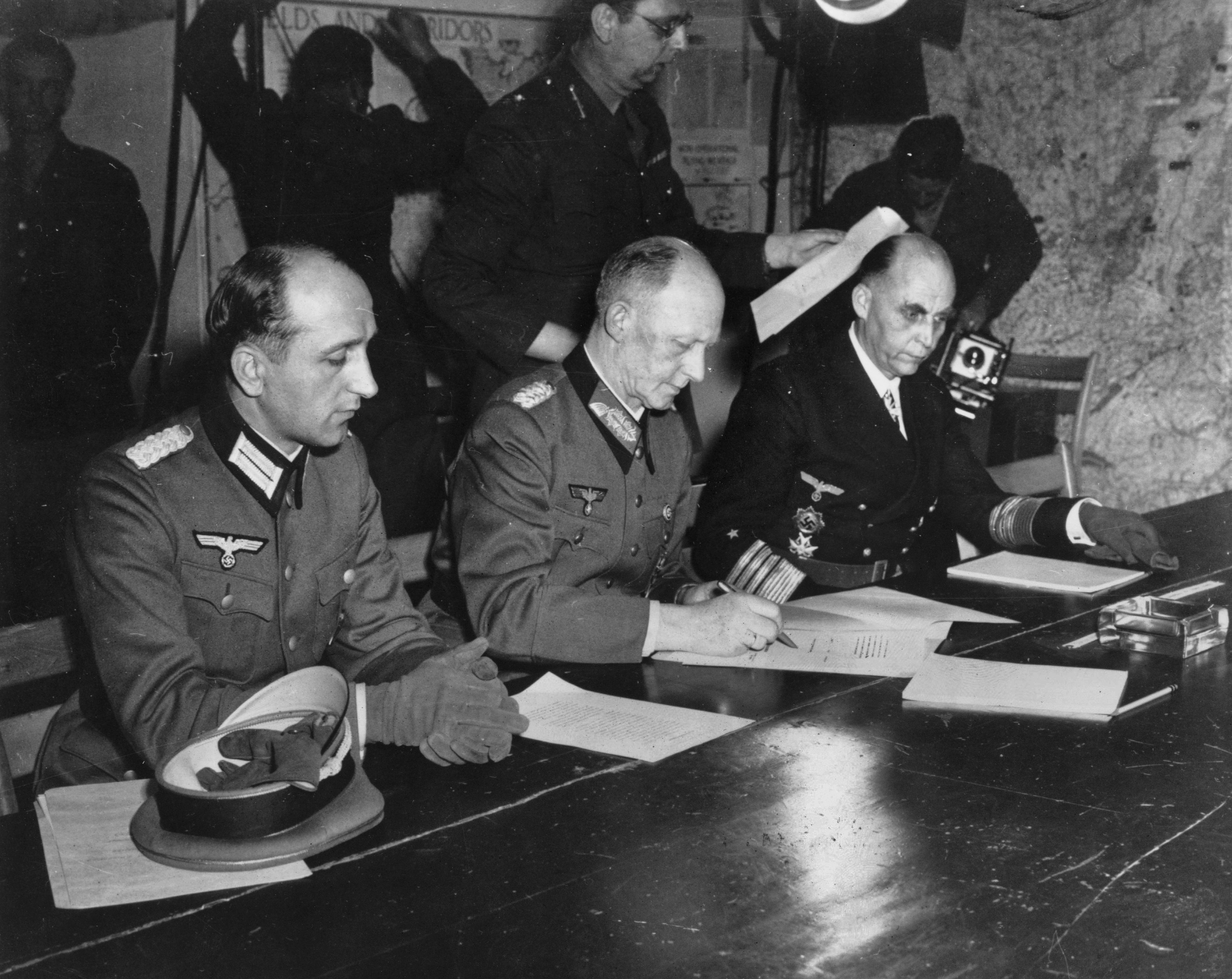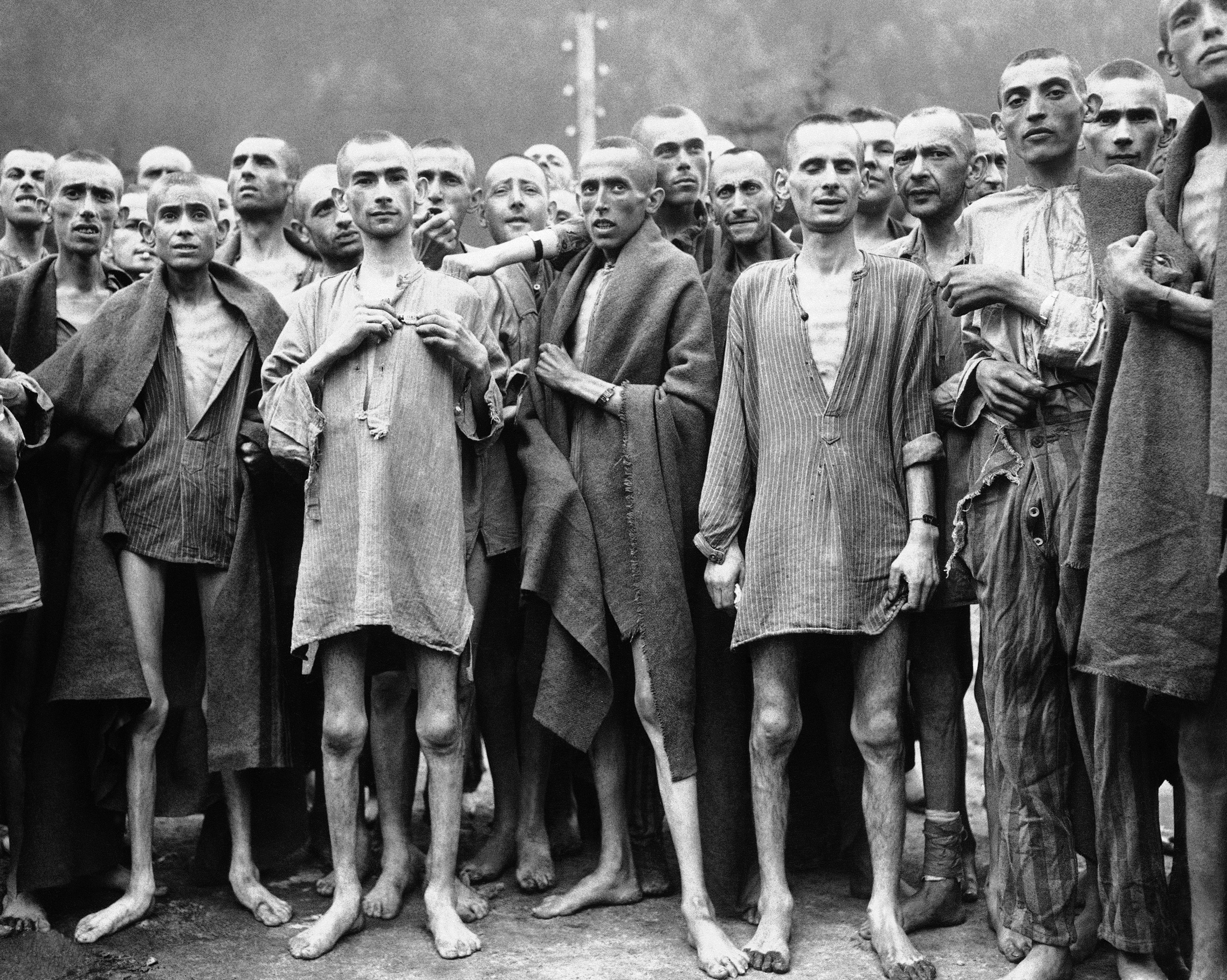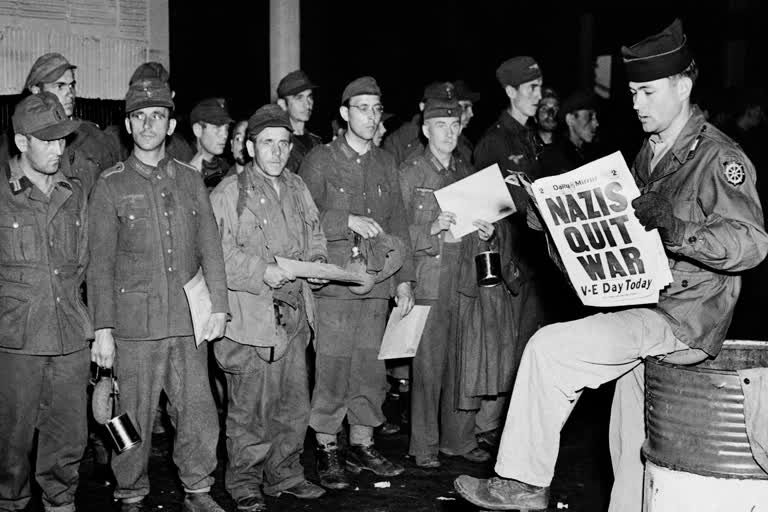London: As the word of German General Alfred Jodl's surrender in the French city of Reims spread around the globe, celebrations broke out from New York to London, to Paris and Moscow. On May 8, 1945, the war in Europe came to an end.
In towns and cities around the world, people marked victory with street parties, dancing and singing.
Then British prime minister Winston Churchill had addressed the nation to announce the ceasefire.
Read also: Hiroshima marks 74th anniversary of WWII atomic bombing
WWII Veteran Ken Hay remembers the 8th May 1945 not just because it was Victory in Europe Day, but because it was also the day he and his brother were reunited.

Hay and his brother were fighting in Normandy when he was captured and taken to Poland. Later, Ken was rescued by British and American forces days before Victory in Europe Day and returned to the UK.
In London, thousands of revellers swarmed Buckingham Palace, the Mall and Trafalgar Square, carrying British flags and jubilant smiles.

Read also: For Russian WWII veteran, virus is just 'another war'
After years of wartime restrictions and conflict -- including food and clothes rationing, bombing raids and blackouts -- people were keen to let loose.
Londoners celebrated in the streets and many went to Buckingham Palace, where King George VI appeared on the balcony alongside his wife Queen Elizabeth, Princesses Elizabeth and Margaret and Winston Churchill.
In July 1945, pictures filmed in Berlin show that many buildings were in a state of ruin or severely damaged but one of the capital's famous landmarks, the Brandenburg Gate, remained intact.
AP



